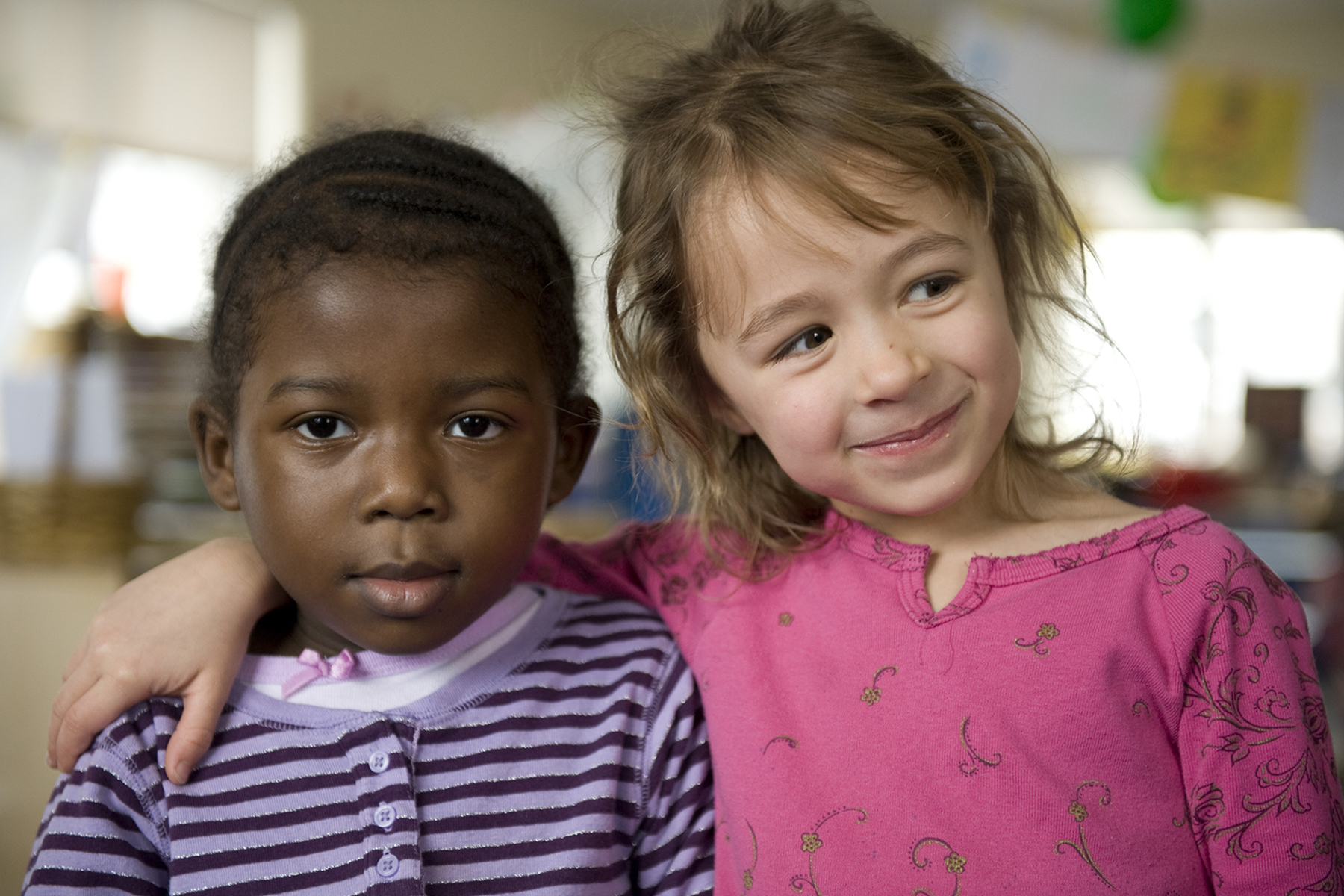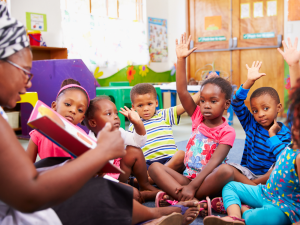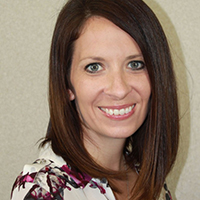St. Paul’s SPARK coalition works to help families thrive
April 20, 2022For Shawnice Walls, trying to find affordable child care in St. Paul is something that impacts her family, her finances and her future.
“I know how hard it is to find affordable child care,” she said. “I’m studying at Metro State and I may have to stop working on my dreams again just to afford day care. At one point I had to work at New Horizon as a substitute teacher for the employee discount on child care.”
A statewide crisis
Shawnice is far from alone. Across Minnesota, families lack access to quality, affordable early childhood care and education. According to a 2020 report from the Minnesota Department of Employment and Economic Development (DEED), nearly 80,000 children across Minnesota were in need of a child care slot but were unable to access one due to a lack of capacity – and that was before the COVID-19 pandemic exacerbated this issue.
In that same report, DEED noted that:
“[R]esearch shows that children who experience the greatest gains from a quality, stable child care environment – lower income children, children of color and Indigenous children – are in families that face the greatest barriers to affording and accessing that care.”
Compounding this lack of access is the fact that child care is expensive. Minnesota is the 4th most expensive state for child care, with Minnesota families spending around $16,000 per year for infant care. This creates a financial challenge for most families, particularly for families with lower incomes.
In St. Paul, poverty rates are highest among children, with 34 percent of 3 and 4-year-old children living below the federal poverty line. And children who are from communities of color and Indigenous communities are disproportionately represented among the poorest children.

Collaborating for impact
Many organizations are working to address these issues, including SPARK (St. Paul All Ready for Kindergarten). SPARK is an effort to make it easier for St. Paul families to find the learning environment that works best for every child. The initiative works to make early learning free or highly affordable, with no cost to lower income families and reduced cost to other households.
“All families deserve quality, culturally responsive early learning options that are right for them,” said Rebecca Noecker, SPARK board chair and St. Paul city council member. “For too many St. Paul families, finding quality and affordable early learning programs is impossible. So many of our children – especially children who identify as Black, Indigenous, Latine, Asian Pacific Islander or other communities of color – don't receive the critical early learning they need to be ready for kindergarten. That gap usually keeps growing throughout their school career, contributing to the educational disparities in Minnesota that are among the worst in the nation.”
SPARK has created a coalition of nonprofits, businesses, elected officials and community leaders who believe that early childhood education is key to reducing St. Paul’s racial disparities and building a community where everyone can thrive.
“All families deserve quality, culturally responsive early learning options that are right for them.” -Rebecca Noecker, SPARK board chair and St. Paul city council member
How a lack of child care affects communities
 Not being able to access or afford child care not only impacts Minnesota’s children, but entire families and communities. When families don’t have access to quality, affordable early childhood care and education, parents and guardians find themselves forced to make hard decisions about work, including leaving the workforce or curbing career growth.
Not being able to access or afford child care not only impacts Minnesota’s children, but entire families and communities. When families don’t have access to quality, affordable early childhood care and education, parents and guardians find themselves forced to make hard decisions about work, including leaving the workforce or curbing career growth.
This was the case prior to the COVID-19 pandemic. In 2019, the Center for American Progress (CAP) reported that “child care challenges have become a barrier to work, especially for mothers, who disproportionately take on unpaid caregiving responsibilities when their family cannot find or afford child care.”
Amid the onset of the pandemic, this situation intensified. According to a 2021 New York Times article, 5.1 million American mothers stopped working for pay in the spring of 2020, and 1.3 million remained out of work more than a year later. In Minnesota, the Minneapolis Federal Reserve Bank found that 11 percent fewer mothers with children under the age of five were in the workforce in late 2020.
In October 2020, CAP reported that despite the many undetermined outcomes, there was already evidence of how this crisis would ripple through current and future generations:
“Unfortunately, too many unknowns make it impossible to predict exactly how families will react to the ever-shifting landscape of public health, employment, and caregiving. Yet the lack of a child care infrastructure or family-forward workplace policies—policies that support caregivers to both provide and care for their family members—means the challenges of this moment are leading the United States toward a catastrophe. Mothers will continue to shoulder the majority of family caregiving responsibilities, as they have both historically and thus far in the pandemic. Mothers of color will be the most affected. This will have a significant negative effect on women’s employment and labor force participation rates, which will in turn have a negative effect not only on both current and future earnings but also on retirement security and gender equity in workplaces and homes.”
Education and health
In addition to child care’s impact on children’s school readiness and parents’ abilities to build strong financial foundations, there is also a strong connection between early education and health. Research tells us that quality early childhood care and education results in:
- Better physical health from childhood to the adult years
- Kids being more likely to enter kindergarten ready to learn and become proficient readers (a strong predictor of high school graduation and long-term health)
- Families across the state receiving critical support
- Progress toward racial and health equity
This connection to health is why the Blue Cross and Blue Shield of Minnesota Foundation has been committed to increasing access to high-quality early childhood care and education for nearly 20 years, and why both the Foundation and the Blue Cross and Blue Shield of Minnesota enterprise are active members of the SPARK coalition.
For more information on SPARK, visit sparksaintpaul.org.
This post also appeared in the Sahan Journal.



